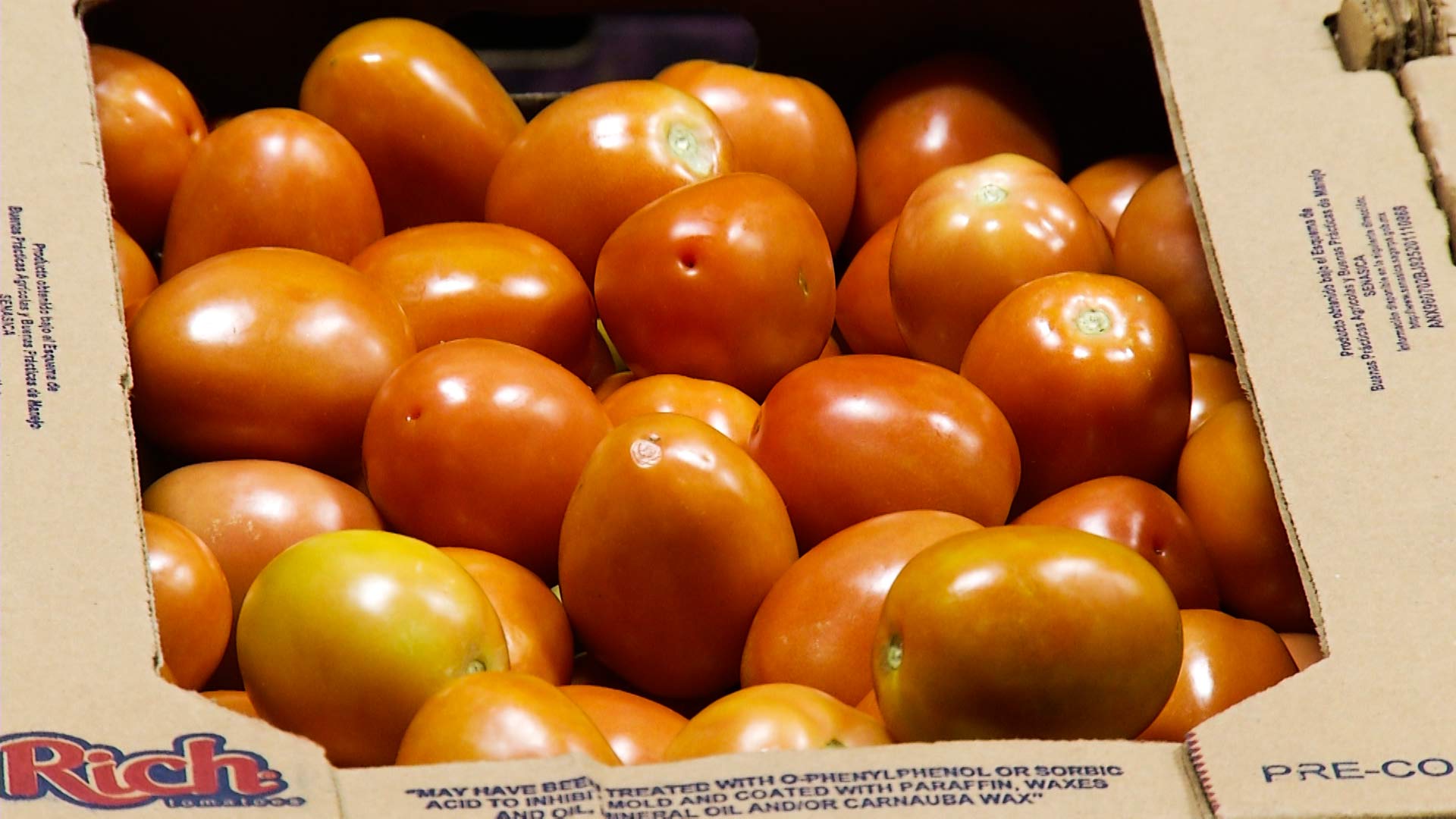 Tomatoes on their way north across the U.S.-Mexico border.
Tomatoes on their way north across the U.S.-Mexico border.
Jesus Seade, Mexico’s chief trade negotiator, said Tuesday that a new tomato suspension agreement could be “at hand.” But only if the U.S. drops its insistence on inspecting 100% of inbound Mexican tomatoes.
“This measure is totally unacceptable to the Mexican government as it constitutes a clear technical obstacle to commerce,” he went on to say in a series of tweets Tuesday. “Accepting it would provoke a logistical and customs collapse in bilateral trade, seriously affecting both countries’ supply chains.”
He also said that Mexican tomatoes are rarely rejected for quality reasons, raising questions about the sense of such a measure.
The 2013 agreement — which the U.S. ended in May, resulting in a nearly 18% tariff — set floor prices and other rules for tomato imports.
“They want to inspect every load, as if they weren’t perishable products,” said Manuel Cazares, vice president of a Mexican tomato grower organization. “If each load takes about an hour and a half ... imagine the thousands of trailers. There aren’t the logistics or capacity.”
Mexican growers have asked their government to impose similar inspection requirements on U.S. agricultural products if any final deal includes that provision. Florida tomato growers, who asked for the U.S. to leave the 2013 agreement last fall, said that amounts to blackmail.
“This is a political attempt to scaremonger other segments of American agriculture so that Mexican tomato producers can get a new agreement that doesn’t have any teeth,” a recent release from the Florida Tomato Exchange reads.


By submitting your comments, you hereby give AZPM the right to post your comments and potentially use them in any other form of media operated by this institution.